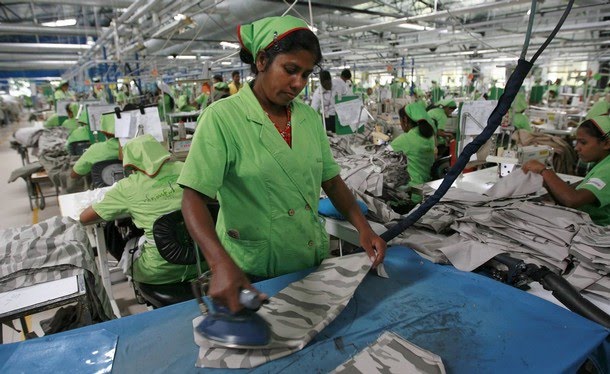
The potential loss of a European Union trade concession that helped Sri Lanka boost business in its largest export market will not have an adverse impact on exporters, the island nation's central bank said on Wednesday.
The EU published a probe on Monday that found Sri Lanka in breach of human rights laws, which threatens the Indian Ocean island nation's access to the Generalised System of Preferences (GSP) Plus scheme. [ID:nLJ731429]
"Our exporters are resilient and the loss would be minimal," K.D. Ranasinghe, director at central bank's economic research department, told Reuters.
With early presidential and parliamentary elections due by April, the present government may be reluctant to be seen as giving in to the EU, which has asked Sri Lanka to provide a response by Nov. 6.
Sri Lanka rejected the findings and said it would defend itself, after refusing last year to cooperate with a rights probe it viewed as a violation of sovereignty while it was fighting to defeat the Tamil Tiger rebels. [ID:nCOL517986]
The central bank on Tuesday, quoting the European Commission, said the GSP Plus concession gave it an extra 78 million Euro ($116.5 million) in 2008, which was 1.4 percent of Sri Lanka's total exports that year.
"Therefore, the loss of preferential duty margin by around 6-7 percent arising from a potential withdrawal of the GSP Plus facility is not expected to have an adverse impact on Sri Lanka's exports," the central bank statement said.
The suspension of GSP plus, which helped Sri Lanka earn a record $3.47 billion from garment exports in 2008, could deal another blow to Sri Lanka's apparel industry, which is already suffering because of the current global economic state.
EU members states are due to vote in the next two months whether to suspend Sri Lanka's GSP Plus participation. If that happens, Sri Lanka would lose the preference six months later, and keep the higher but still concessional duties under normal GSP.
Last year, Sri Lanka said it would set aside $150 million to cushion affected exporters against the loss of GSP Plus, and said that was its estimate of the total potential financial impact.
Now that Sri Lanka is in the middle of a $2.6 billion International Monetary Fund (IMF) loan programme, the fate of the plan, which Sri Lanka insisted was not a subsidy but a support scheme, is unclear. The IMF generally frowns on subsidies.
In 2008, the European Union was Sri Lanka's largest export market, accounting for 36 percent of its $8.1 billion in total exports, followed by the United States with 24 percent.
© Reuters

















No comments:
Post a Comment